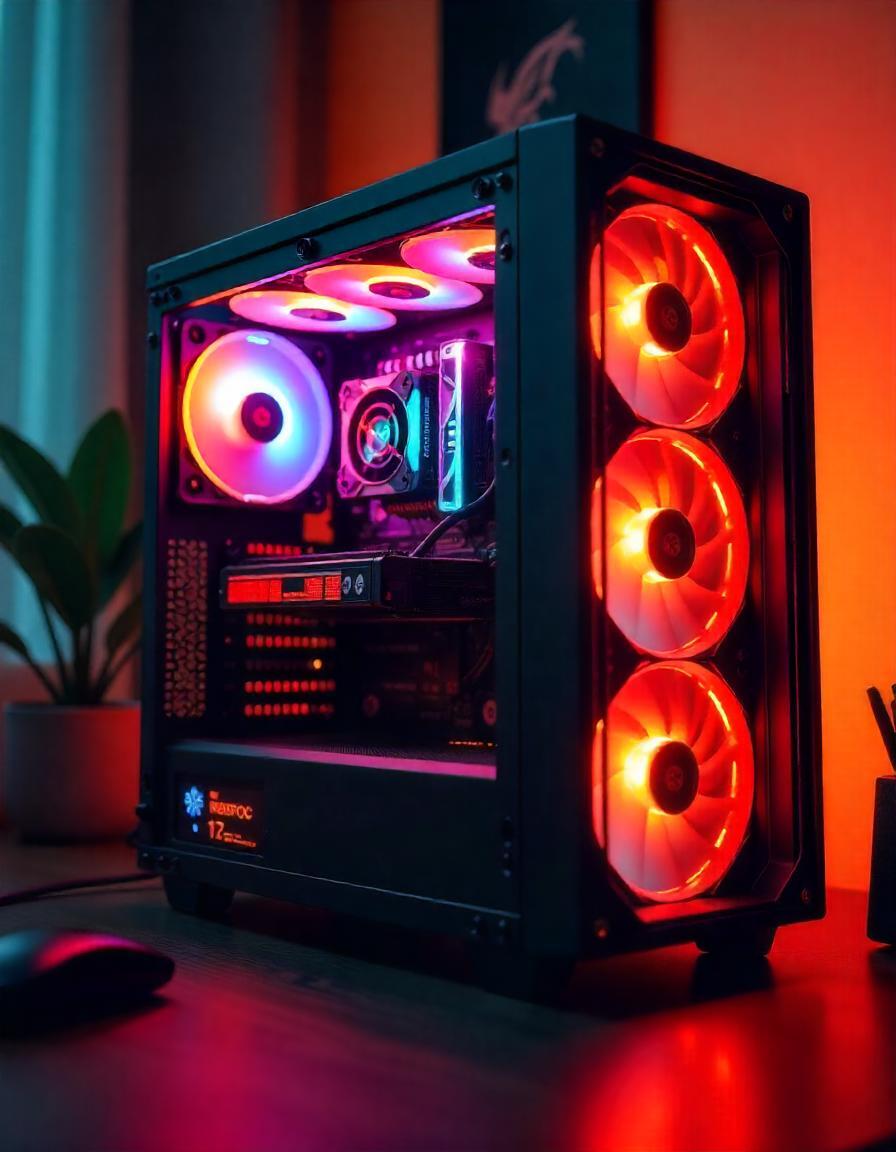Published on: October 22, 2024 | 5 minute read
Which perfect gaming server hardware caters to your gaming community's needs? Setting up a gaming server takes more than just the use of a powerful machine. Whether you're organizing private sessions with friends or building a larger multiplayer platform, the proper server configuration significantly impacts everyone's overall experience. In this guide, we’ll delve into how to pick the best gaming server hardware, highlight essential components for your setup, and guide you through the build process to guarantee optimal performance with minimized latency.
Why Build Your Own Gaming Server
Running your own gaming server allows you greater control over the game settings, rules, and who can join. It also guarantees that your server meets the unique requirements of the games you run. Whether it's Minecraft or ARK: Survival Evolved, different games need a particular gaming server hardware to function properly, so it's essential to choose the right components.
Essential Components for the Best Gaming Server Hardware
-
Processor (CPU)
The CPU of your gaming server acts like its brain. A multi-core processor is required to efficiently manage the heavy demands from numerous players simultaneously. It is necessary to achieve the best gaming server build. High-performance CPUs such as Intel's Xeon or the AMD Ryzen series are frequently suggested for gaming servers. They perform well, especially when hosting resource-intensive games or accommodating a large number of players. Aim for processors with higher clock speeds (GHz) and multi-threading features to minimize lag and enhance overall performance.
-
Memory (RAM)
RAM plays a huge role in your gaming server setup. Servers require sufficient memory to store data and manage the flow of real-time game information. Around 16GB of RAM is viewed as the minimum on most gaming servers for smooth play. However, depending on the specific game, server size, and number of players, it may be necessary to upgrade to 32GB or more to avoid slowness and crashes.
-
Storage (SSD or HDD?)
The process of choosing a gaming server hardware is important. The type of storage must be kept in mind to achieve top performance. Solid-state drives outclass traditional hard drives with faster read and write speeds. They lead to shorter loading times and enhanced overall response time. To achieve the best gaming server setup, investing in an SSD for your primary storage is especially important if you’re running multiple game instances or managing significant player data.
-
Network Interface Card (NIC)
A high-speed network interface card guarantees low-latency connections, particularly when combined with a reliable internet connection. Your server’s network connection is just as important as its internal components. NICs that support 1 Gbps or higher are recommended for the best experience.
-
Power Supply Unit (PSU)
A dependable power supply is a core to maintaining stable performance in your gaming server setup even though it may not always get the attention it deserves. Choose a PSU that delivers consistent power to all components, particularly when running resource-intensive games that place a strain on your system.
-
Cooling Solutions
Gaming servers often generate heat, especially during long sessions with many players. Cooling systems, such as air or liquid cooling, help maintain optimal temperatures. Keeping hardware cool prevents overheating, which could lead to crashes or diminished performance over time.
Optimizing Your Gaming Server Setup
-
Server Operating Systems
OOne massive decision is selecting the appropriate operating system (OS) for your gaming server. Windows Server provides a familiar interface for users accustomed to Windows, while Linux-based distributions such as Ubuntu Server are frequently favored by more experienced users due to their reliability, performance, and flexibility in customization.
-
Server Hosting vs. Dedicated Hardware
If you're hosting a small number of gamers, a personal gaming computer should be enough to run your play. But if you are aiming to host larger multiplayer setups however, or if you need it to be online all the time, it's a good idea to invest in dedicated gaming server hardware. This type of hardware guarantees that your games operate smoothly without being disrupted by other tasks.
Conclusion: Build the Best Gaming Server
Take the time to evaluate your server's requirements and invest in the correct hardware for that top gaming experience. Select the right components that benefit performance, scalability, and long-term reliability when building the best gaming server hardware. From multi-core processors to SSD storage and high-speed network interface cards, every aspect is important for your server to operate seamlessly.
Q&A FAQs
Q: I want to run a gaming server. What is the minimum hardware required ?
A. The minimum requirements depend on the games you plan to add. A quad-core CPU, 16GB of RAM, and an SSD for quick storage are what we recommend to begin a gaming server.
Q: Do I need something else, or is my personal computer enough to run a gaming server?
A. Yes, you can host a small server on your personal computer, but for larger games or more players, it's better to use dedicated gaming server hardware to prevent performance issues.
Q: Should I choose SSD and not HDD?
A. SSDs provide faster data transfer speeds, which means shorter loading times and better overall game performance compared to traditional HDDs.
Q: Is a dedicated graphics card necessary?
A. Usually, gaming servers don’t need high-end GPUs since their main focus is on processing and data management rather than rendering graphics.
Q: I want to increase my player base. How do I optimize my server?
A. To allow more players, consider upgrading to a multi-core processor, increasing your RAM to 32GB or more, and ensuring you have a high-speed internet connection with a dependable NIC.

